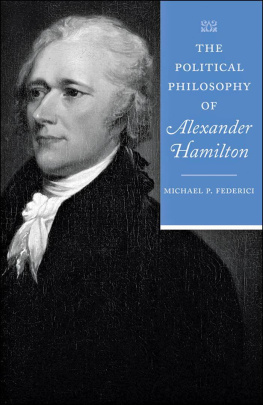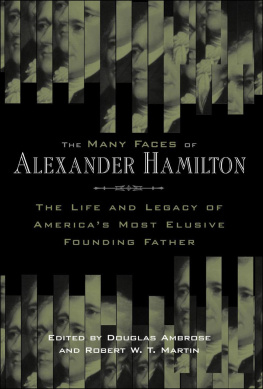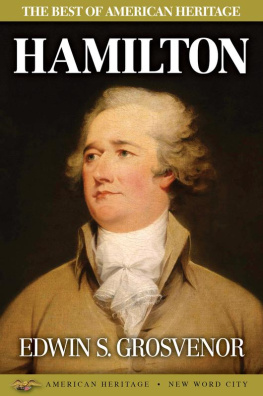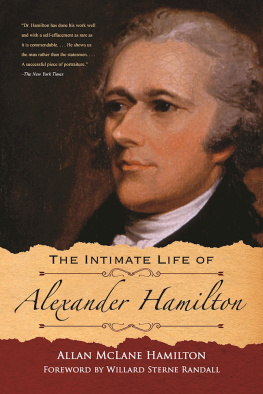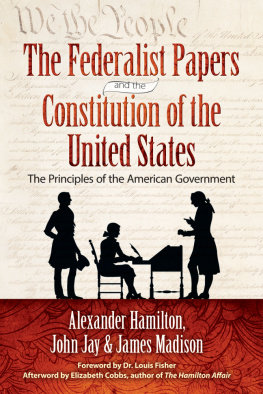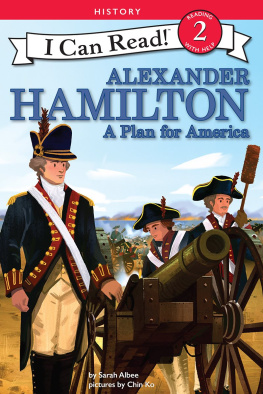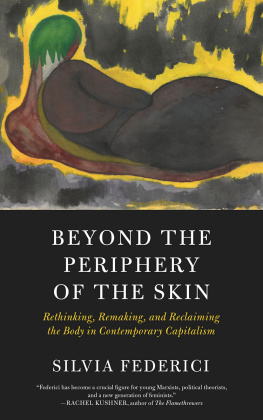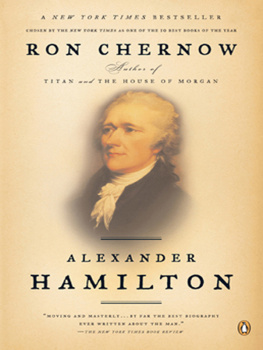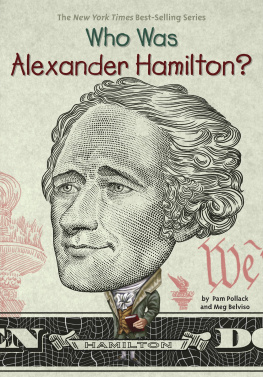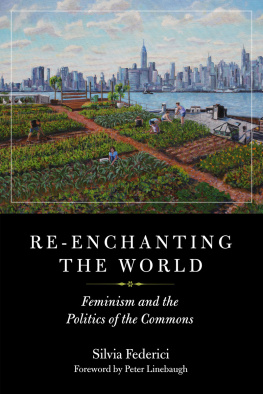Jeffry H. Morrison, The Political Philosophy of George Washington
Michael P. Federici, The Political Philosophy of Alexander Hamilton
THE
POLITICAL PHILOSOPHY
OF
Alexander Hamilton
MICHAEL P. FEDERICI

2012 The Johns Hopkins University Press
All rights reserved. Published 2012
Printed in the United States of America on acid-free paper
2 4 6 8 9 7 5 3 1
The Johns Hopkins University Press
2715 North Charles Street
Baltimore, Maryland 21218-4363
www.press.jhu.edu
Library of Congress Cataloging-in-Publication Data
Federici, Michael P.
The political philosophy of Alexander Hamilton / Michael P. Federici.
p. cm. (The political philosophy of the American founders)
Includes bibliographical references and index.
ISBN 978-1-4214-0538-4 (hdbk. : alk. paper) ISBN 1-4214-0538-5
(hdbk. : alk. paper) ISBN 978-1-4214-0539-1 (pbk. : alk. paper)
ISBN 1-4214-0539-3 (pbk. : alk. paper) ISBN 978-1-4214-0660-2
(electronic) ISBN 1-4214-0660-8 (electronic)
1. Hamilton, Alexander, 17571804Political and social views.
2. Political sciencePhilosophy. 3. Political scienceUnited
StatesHistory18th century. I. Title.
JC211.H24F43 2012
320.092dc23
2011046456
A catalog record for this book
is available from the British Library.
Special discounts are available for bulk purchases of this book.
For more information, please contact Special Sales at 410-516-6936
or specialsales@press.jhu.edu.
The Johns Hopkins University Press uses environmentally friendly book
materials, including recycled text paper that is composed of at
least 30 percent post-consumer waste, whenever possible.
CONTENTS
ACKNOWLEDGMENTS
A N AUTHOR WHO spends years on a book project has had the help of friends, new and old, and professionals, all of them instrumental in completion of the project. Phil Belfiore, vice president for academic affairs at Mercyhurst University, kindly lowered my teaching load so that it was possible for me to both teach and make progress on the book. In addition, without a sabbatical leave from my teaching duties I would not have had the time or energy to write a draft of the manuscript. During my sabbatical, I spent three months in Dungarvan, Ireland, writing nearly every day. My Irish friends, especially Tom Keith, provided respite from the chore of writing, and the beautiful countryside allowed me to regenerate each day and prepare for the task at hand. Earleen Glaser, Mercyhurst University archivist, helped me find suitable images of Hamilton for potential use on the books cover. Gannon University graciously allowed me easy access to the twenty-seven volumes of Hamiltons papers, edited by Harold C. Syrett and Jacob E. Cooke, in the universitys library.
During the long gestation of the book, I was assisted by editors at the Johns Hopkins University Press. Henry Tom guided me through the early stages of the process with the calm and professionalism that were the result of his decades of experience. He retired just as I finished the draft of the manuscript, and within a few months, he passed away. Working with such a talented and well-respected editor was a privilege. The project then passed to Suzanne Flinchbaugh, who helped me respond to a readers criticisms and begin to fine tune the manuscript. The Presss peer reviewer was instrumental in keeping me true to my own principle of analyzing Hamilton without taking a stake in the centuries of debate about his legacy. Robert J. Brugger picked up the baton and has pushed me to the finish line. I am especially grateful to Anne Whitmore, a talented copy editor, who improved my prose with precision and humor. The series editor, Garrett Sheldon, provided an encouraging voice, as well as insight into the importance of religion in Hamiltons political ideas.
I am also indebted to my friends and colleagues who read parts of the manuscript or listened to my arguments with careful attention. Ryan Holston of Virginia Military Institute, Justin Garrison of Catholic University, and Jeff Polet of Hope College were especially helpful in this regard. Barry Shain made useful suggestions regarding historical sources. A conversation while walking with Don Livingston through Colonial Williamsburg reassured me that my reading of David Hume and his influence on Hamilton were on target. Jeffry Morrison encouraged me to pursue the project, and his book on George Washington in the same series was a useful guide. I am grateful to a group of historians who have, over the years, inspired me to deepen the historical dimension of my scholarship. Richard Gamble, Walter McDougall, John Lukacs, and Thomas Fleming are chief among these. While I have taken the suggestions of editors, readers, and friends to heart, the shortcomings of the book are my responsibility.
Finally, I thank my wife, Frances, and my daughters Libby and Amy. They were often the first to hear about new information I learned while conducting research. I knew I had pushed them a bit too far in my enthusiasm for the project when I suggested naming our female Boston terrier puppy Hamilton and was met with a resounding Enough already with the Hamilton stuff! It is my hope that one day my girls, as well as my students, will read the book and discover the remarkable contribution that Alexander Hamilton made to American political thought.
The Political Philosophy
of Alexander Hamilton
INTRODUCTION
HAMILTONS SIGNIFICANCE
M AKING JUDGMENTS ABOUT historical figures is challenging, especially about someone like Alexander Hamilton, who was both ardently opposed and strongly supported in his own day and long after his death. Scholars have been debating Hamiltons legacy for more than two hundred years, and, because of these opposing enthusiasms, few have achieved a level of critical distance that allows for accurate and just analysis. aims to counter John Steele Gordons earlier work, Hamiltons Blessing. The book titles play in opposite ways on a remark Hamilton made about national debt. As the titles suggest, one disparages Hamiltons views and policies, the other defends them. Both books trace recent economic policies and practices to Hamiltons political economy and political theory as a way of commenting on contemporary political issues. Rarely are scholarly or journalistic works on Hamiltons life or political ideas ambivalent.
It is easy to get pulled into the ongoing debates about Alexander Hamiltons place in American history and the validity of his ideas. These debates are often motivated by contemporary issues that relate, in one way or another, to Hamiltons political theory. No doubt, the reader will find that the analysis provided here includes judgments about Hamiltons contribution to American political and economic ideas, as well as his role in forming the early republic. Most of the analysis, however, is expository. It explains Hamiltons ideas without taking sides in the longstanding debate over his legacy. Consequently, readers of Jeffersonian inclination are likely to find the book too kind to Hamilton and readers of a Hamiltonian ilk are likely to conclude that it does not do him justice. Whatever conclusion one may draw about Hamilton or the analysis provided in this book, there is no doubt that he continues to be a central figure in debates over American identity, American economic and foreign policy, and the meaning of the American Constitution. It is in these central areas of American life that Hamiltons political theory is most salient and most interesting. It is because his politics and policies spoke, and speak, to such central issues that they were contentious in his day and continue to ignite controversy today.

